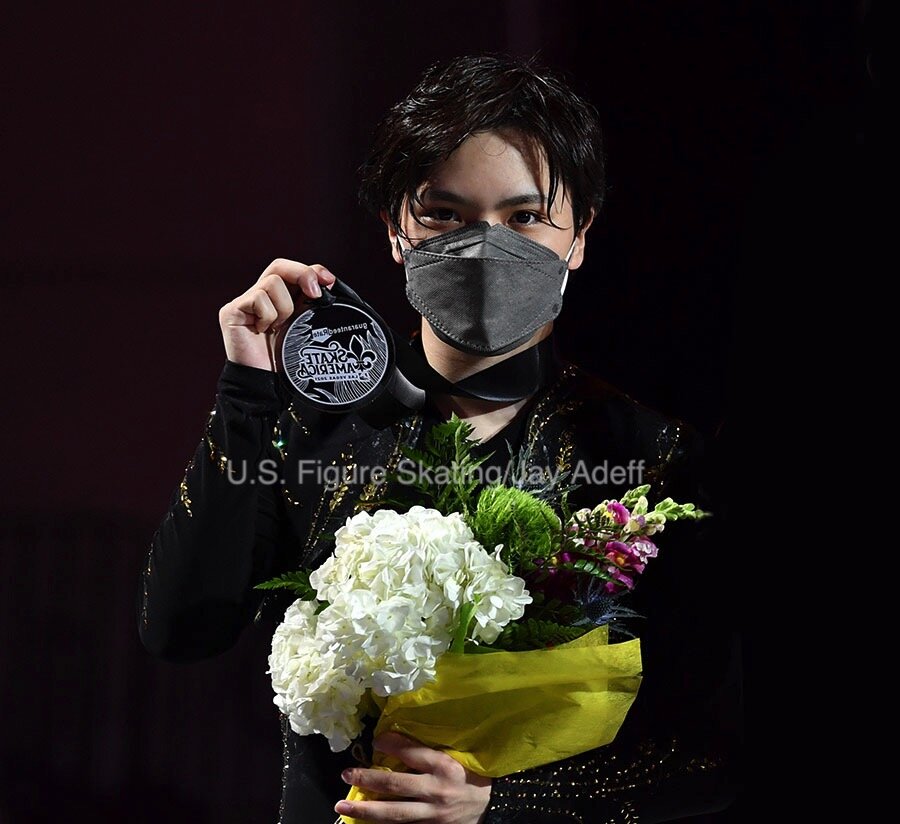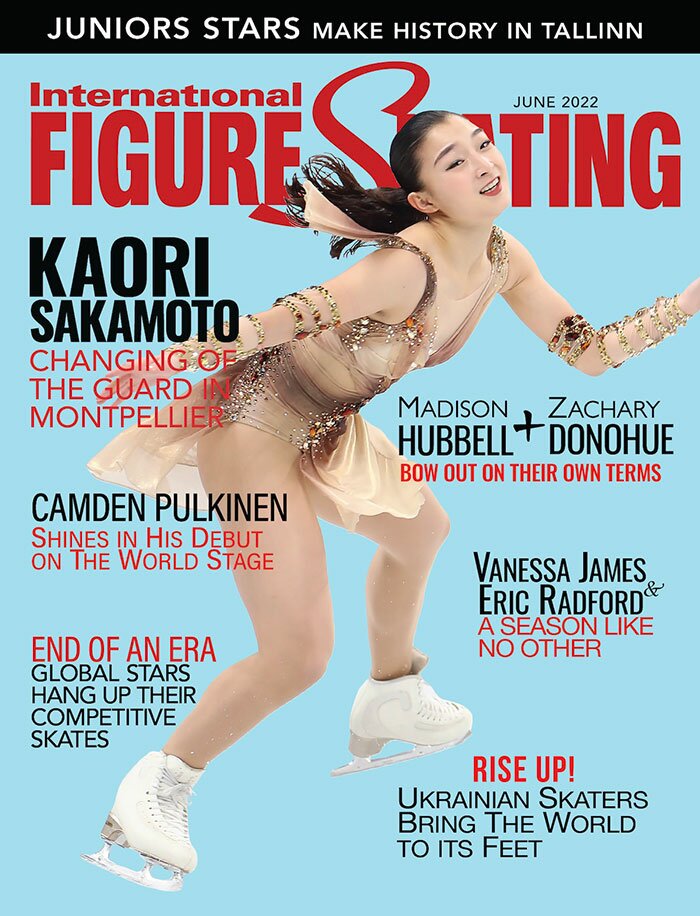

Shoma Uno returned to international competition this weekend at Skate America. Due to the pandemic restrictions in Japan he has been training in his homeland since the spring, far from his Swiss-based coach Stéphane Lambiel.
During a media scrum in the mixed zone following a practice session in Las Vegas, Uno said he felt he was in good shape and the best condition he could hope to be in. When asked about the technical content he hopes to include in his programs this season, two quads were at the forefront: loop and Salchow.
“After the Japan Open earlier this month, my plan to go to Switzerland changed and I remained in Japan,” he said. “I have a strong feeling for skating. I think I’m in good condition and I want to know who I am now in the game — rather than looking forward to the game — and I want to show that to everyone.”
Given the line up in the men’s event, which included Nathan Chen of the U.S., Uno did not consider himself a contender. “I don’t think I’m the player who will fight (for a medal) but it may be possible. Expectations for myself are rising,” he explained.
Those expectations played out in the competition, with Uno finishing second in the short program — not behind Chen as he had expected, but ahead of him — with Vincent Zhou of the U.S. winning the segment.
Uno opened his short, set to “Oboe Concerto” by A. Marcello and Vivaldi’s “Oboe Concerto” (in C minor For Cello), by doubling the flip for which he earned no points. He came right back with a solid quad toe-triple toe and a triple Axel, earning Level 4s for the spins and step sequence and a score of 89.07 — 8.36 points behind Zhou.
He continued that technical trend in his free skate, performed to a new arrangement of Ravel’s “Bolero.” He opened the routine with an unsteady landing on a quad loop, followed by a downgraded quad Salchow. Uno then pulled himself together and reeled off a series of solid jumping passes, which included two quad flips, one in combination, and two triple Axels, with his only other error being a q on a triple flip on the back end of a three-jump combination. Once again, his spins and the step sequence were graded Level 4.
Uno finished third in the free skate, but closed out the competition in second place with an overall score of 270.68 — 24.86 points behind Zhou and 1.31 points ahead of Chen — capturing his third Skate America medal (he earned silver in 2015 and was crowned the champion the following year).
“It’s not about what I did well in my performance or what I could not do in either my short or free program, it is more about revisiting the mistakes I made in this competition, the things I lacked,” said Uno at the press conference following the free skate. “I think I will just work hard for my next Grand Prix which is NHK in Japan.
“To be honest, I am very honoured that I landed in second because it was a very high level competition; it was amazing and I am really aware of that. At the same time, when I think about my goals and what I am aiming to attain, I face the reality that I am not there yet” said Uno, adding ‘Vincent, your performance last night and today was amazing.’ Just training with these top skaters … I could see for example that Vincent’s free program is so stable. It shows how much practice he had coming into the competition. That made me realize I need to train much more.”
When asked about his music selection for the Olympic season, Uno replied that “Stéphane came to me and said this is the music so I decided that is what we were going to go with.
“Every season I do not have music I am hung up on that I insist on using. I leave the selection of music up to my coaches. My motto is to make sure that every season it is something better than the previous season. I was finally able to show Stéphane the program on the ice here, but my mind was more focused on the jumps so the program still has a long way to go.”
RELATED CONTENT:
2021 GRAND PRIX SERIES



